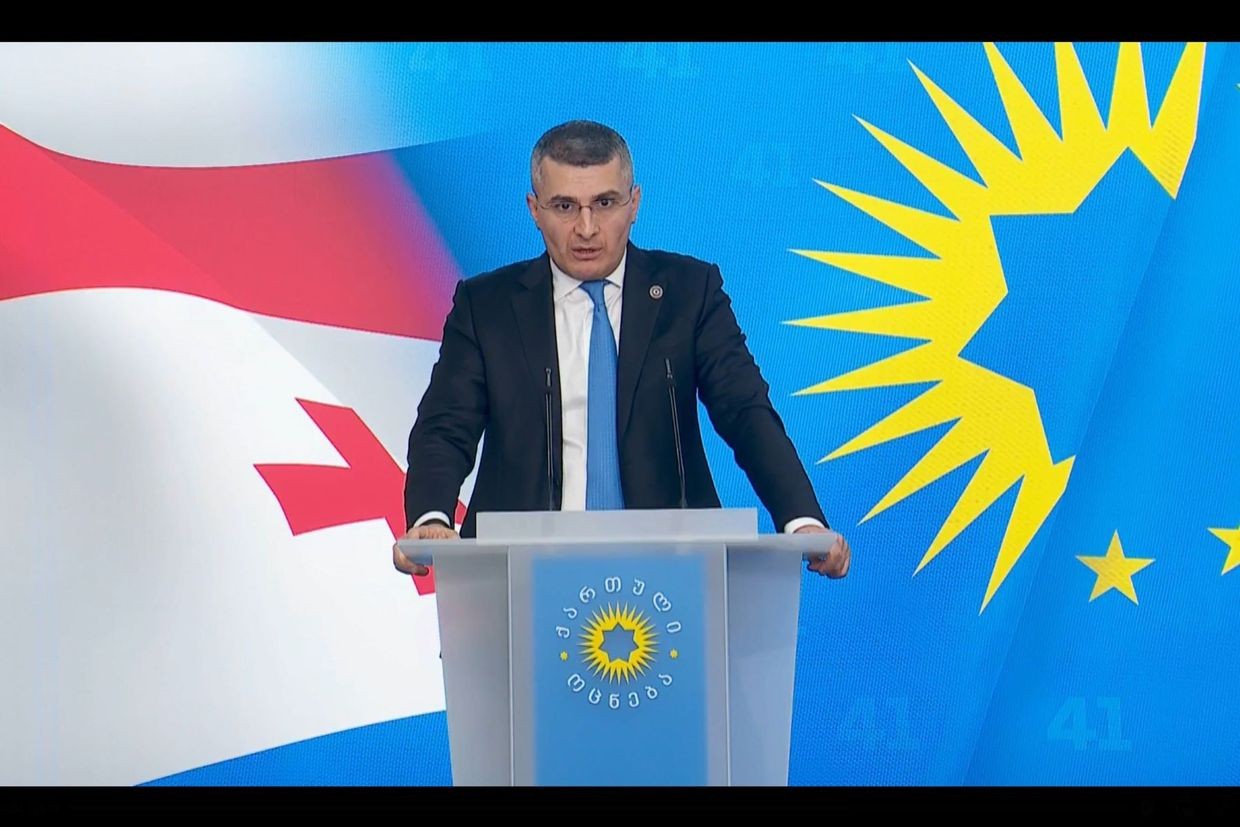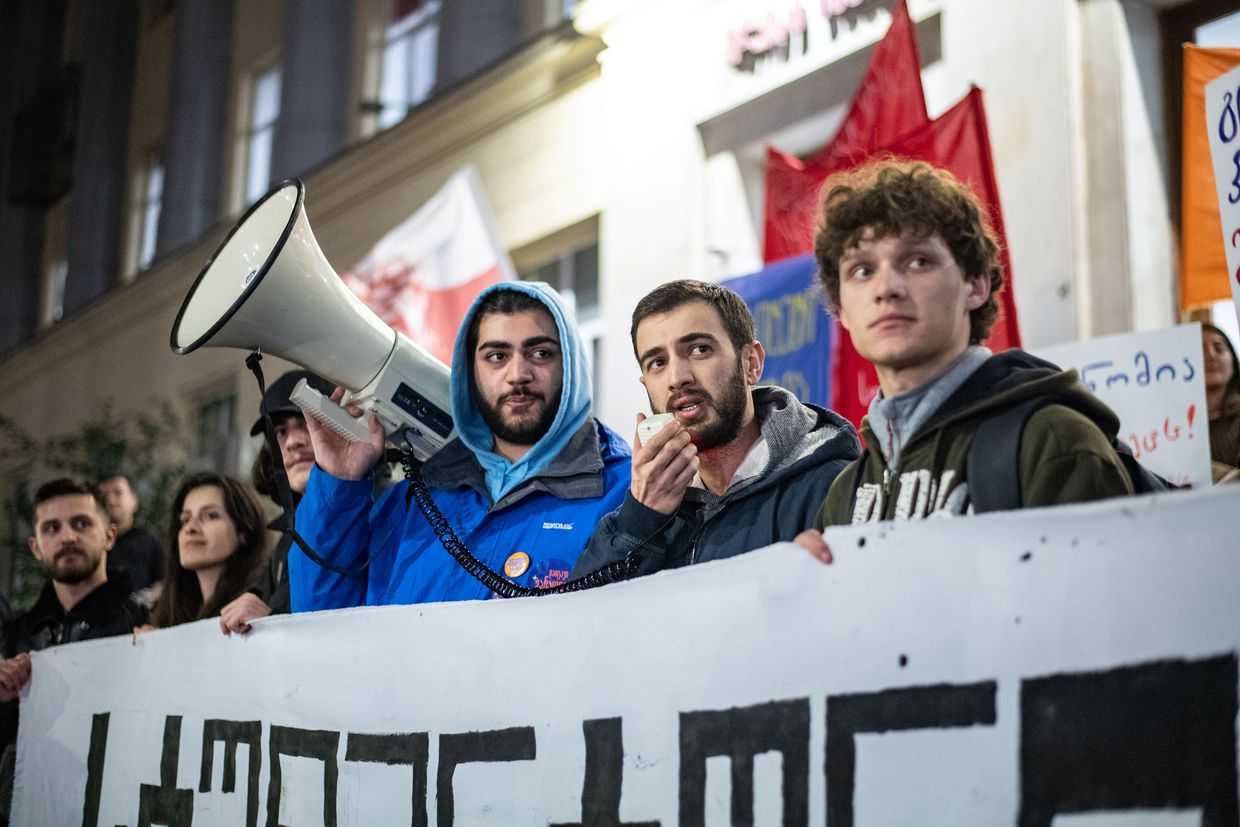
The ruling Georgian Dream party has announced plans to ‘restore’ articles for treason in the criminal code as part of a series of controversial amendments critics view to be repressive.
The Georgian Dream’s parliamentary leader, Mamuka Mdinaradze, stated at a briefing on Monday held at the party’s office that they intend to restore the article after the previously ruling United National Movement (UNM) party ‘removed it from the criminal code’.
‘By our decision, the criminal code of Georgia will add — and it would be more correct to say, the criminal code will restore — the article on treason, which was removed from the criminal code by the [UNM] at one time’, he said.
‘No matter how surprising or symbolic it may be, it happened, it was done before the August war, in April 2007’.
The party’s announcement to restore the article comes amidst extensive amendments made to the criminal code and and the administrative offences codes, which toughen punishments and fines against protesters.

Georgian Dream has also appeared to resurrect its pre-election promise to ‘punish’ the UNM by establishing a parliamentary commission in early February — the ‘Interim Fact-Finding Commission on the Activities of the Regime and the Officials of the Political Regime of 2003–2012’ — to conduct an investigation into the former ruling party.
Georgian constitutional lawyer Vakhushti Menabde told PalitraNews that this ‘initiative of the ruling party has no legal goals, but is propaganda’.
‘This is an attempt to stigmatise and blacken people under a certain name. Today, we, who are in the resistance movement, pose a greater threat to the ruling party than those political opponents whom we call the opposition’, he said.
‘In some cases, such an opposition is even a gift for the ruling party, they are so weak. Today, there are 50 political prisoners in the country, and these people have no political affiliation. Therefore, after this law, the main blow will be dealt to those people who pose the greatest threat to the Georgian Dream as a regime’.
Georgia has been in the midst of a political crisis since the October 2024 elections, whose official results gave Georgian Dream a large majority of the votes. The crisis deepened with daily protests in late November when the government announced it was halting the country’s EU membership bid.
Human rights activists in Georgia have suggested that more than 400 people could have been detained during pro-EU demonstrations against the government in November and December — a large number of whom claim that they were subjected to physical or psychological abuse by law enforcement officers.
‘FARA’ and a media law ‘inspired by the UK’
During the same press briefing, Mdinaradze also shared additional information about two new pieces of legislation he had announced earlier in February: a law which he said would replace the controversial foreign agent law and would be a copy of the American Foreign Agents Registration Act (FARA), and a ‘media law’ inspired by British legislation.
He said that the two laws will be submitted to parliament and that their initial versions would prevent public sector agencies from receiving benefits from foreign services, and would also exclude civil society organisations from participation in decision-making processes in the government or parliament.
Mdinaradze again said that Georgian Dream’s version of FARA would allegedly be an exact copy of the American law — echoing previous claims his party and its satellite group, People’s Power, made about the foreign agent law upon its first introduction in 2023.
The foreign agent law labels any civil society or media organisation that receives at least 20% of its funding from abroad ‘organisations carrying out the interests of a foreign power’. Such organisations must register as foreign agents in a special registry and are subject to monitoring every six months, which lawyers have warned could include forcing them to hand over internal communications and confidential sources.
In its report on the foreign agent law in May 2024, the Venice Commission dismissed comparisons between FARA and the controversial Georgian law, saying that the US ‘does not generally require’ NGOs and media organisations which have received foreign grants and support to register as foreign agents under FARA.
‘In sharp contrast to FARA and similar laws, the Georgian law presupposes that anyone receiving foreign support will act in pursuit of the interests of the foreign funder (referred to as “foreign power”), by triggering an automatic, unevidenced, and irrebuttable presumption of some form of influence or control of the work of the recipient by the donor’, the report continued.
The foreign agent law was adopted amidst mass demonstrations and clashes between demonstrators and police in May 2024.
Mdinaradze has said that the media law ‘mainly concerns “fake news” and will be adopted taking into account the principles of the British model’.
Mdinaradze again did not provide any further details about the two draft laws.











